Pregnancy is a transformative journey for every expectant mother, as her body goes through numerous changes to support the growth and development of her unborn child. One of the most crucial aspects of a healthy pregnancy is nutrition. Adequate intake of essential nutrients during this time is vital not only for the mother's well-being but also for the optimal growth and development of the fetus. In this article, we will delve into the importance of nutrition during pregnancy, discussing key nutrients and their benefits. We will also explore the diagnosis and treatment of nutritional deficiencies, highlighting common symptoms and causes. Finally, we will provide a comprehensive guide to achieving optimal nutrition during pregnancy, offering tips, meal plans, and expert advice to ensure a healthy and nourishing journey for both mother and baby.
1. "Understanding the Importance of Nutrition during Pregnancy: Key Nutrients and their Benefits"
Pregnancy is a crucial period in a woman's life that requires special attention to dietary intake. Proper nutrition plays a vital role in the development and growth of the baby, as well as the overall health and well-being of both the mother and child. Understanding the importance of nutrition during pregnancy is essential to ensure a healthy and successful pregnancy journey.
Key nutrients are particularly important during pregnancy as they support the various physiological changes occurring in the mother's body and contribute to the optimal development of the baby. Let's explore some of the essential nutrients and their benefits in detail:
1. Folic Acid: Folic acid, also known as folate, is a B-vitamin that is crucial for the development of the baby's neural tube, which eventually forms the brain and spinal cord. Adequate intake of folic acid before and during early pregnancy reduces the risk of neural tube defects and other birth defects. It is recommended that pregnant women consume 400-800 micrograms of folic acid daily.
2. Iron: Iron is necessary for the production of hemoglobin, the protein in red blood cells that carries oxygen to the body's tissues. During pregnancy, blood volume increases to support the growing fetus, resulting in an increased demand for iron. Insufficient iron intake can lead to iron-deficiency anemia, which can have adverse effects on both the mother and baby. Pregnant women should aim for 27 milligrams of iron per day through dietary sources or supplementation.
3. Calcium: Calcium is essential for the development of the
2. "Diagnosing and Treating Nutritional Deficiencies in Expectant Mothers: Common Symptoms and Causes"
During pregnancy, it is crucial for expectant mothers to maintain a well-balanced and nutrient-rich diet to support both their own health and the development of the growing fetus. However, despite their best efforts, some pregnant women may still experience nutritional deficiencies. Diagnosing and treating these deficiencies promptly is vital to ensure a healthy pregnancy and reduce the risk of complications.
Nutritional deficiencies in expectant mothers can manifest in various ways, often presenting with specific symptoms. One of the most common symptoms is fatigue, which can be caused by a lack of essential vitamins and minerals such as iron, vitamin B12, or folate. Iron deficiency anemia is particularly prevalent during pregnancy and can lead to complications such as preterm birth or low birth weight if left untreated.
Another common symptom of nutritional deficiencies is poor immune function, making pregnant women more susceptible to infections and illnesses. This can be attributed to a lack of nutrients such as vitamin C, vitamin D, and zinc, which play a crucial role in supporting the immune system. Furthermore, inadequate intake of calcium and vitamin D can contribute to the development of gestational hypertension and preeclampsia, conditions that pose serious risks to both the mother and baby.
In addition to physical symptoms, nutritional deficiencies can also affect the mental well-being of expectant mothers. Deficiencies in omega-3 fatty acids, vitamin D, and B vitamins have been linked to an increased risk of antenatal and postnatal depression. These mental health issues can have a profound impact on both the mother and
3. "A Comprehensive Guide to Achieving Optimal Nutrition during Pregnancy: Tips, Meal Plans, and Expert Advice"
Pregnancy is a crucial period in a woman's life that requires special attention to nutrition and nutrient intake. Proper nutrition during pregnancy is essential for the health and development of both the mother and the growing baby. It is important to ensure that pregnant women receive an adequate amount of essential nutrients to support the healthy growth of the fetus and to maintain the mother's overall well-being.
To achieve optimal nutrition during pregnancy, it is essential to follow a well-balanced diet that includes a variety of nutrient-rich foods. Here are some tips and meal plans to help pregnant women meet their nutritional needs:
1. Include a variety of fruits and vegetables: Fruits and vegetables provide essential vitamins, minerals, and antioxidants that are crucial for a healthy pregnancy. Aim to include a variety of colorful fruits and vegetables in your daily meals to ensure a diverse range of nutrients.
2. Choose whole grains: Whole grains such as brown rice, whole wheat bread, and oats are rich in fiber and provide essential nutrients like B vitamins and iron. These grains help regulate digestion, prevent constipation, and provide sustained energy throughout the day.
3. Consume adequate protein: Protein is vital for the development of the baby's organs, muscles, and tissues. Include lean sources of protein such as lean meats, poultry, fish, eggs, beans, lentils, and tofu in your meals. Vegetarian or vegan women can opt for plant-based protein sources like quinoa, chia seeds, and legumes.
4. Don't forget about healthy fats: Healthy
